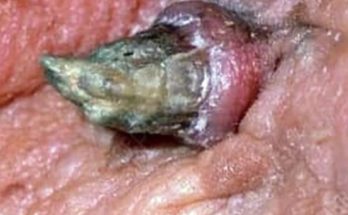A new study has explored male preferences regarding female genitalia – including what they find most attractive.

According to the Daily Mail, 200 heterosexual men – ranging from the ages of 19 to 77 – took part in a study conducted by E. Sandra Byers, professor emerita at the University of New Brunswick (UNB), and UNB clinical psychologist Miranda Fudge.
The participants were asked to rank 24 characteristics that were divided into three categories: Appearance/Physical Characteristics, Smell/Taste, and Function.
The ‘Appearance’ category included factors such as clitoris size, shape, and pubic hair, and the ‘Smell/Taste’ category was limited to aroma and taste. The ‘Function’ category listed attributes related to the sensation of vaginas, such as warmth and sensitivity.
The authors published their research findings in the International Journal of Sexual Health on November 8.

The majority of participants prioritized the sensory experience of sex, and qualities such as smell, taste, and sensitivity, over symmetry or labial size.
This indicates that their attitudes towards vaginas are mostly shaped by how they feel and function, not how they look.
In addition to this, researchers asked the men to rank how strongly they agreed with the statements: “Women’s genitals are beautiful” and “Women should feel proud of their genitals”.
While the study discovered that overall, the participants had positive attitudes, individual opinions varied significantly as roughly one-fifth of participants expressed negative views – suggesting that a substantial minority of men do not find female genitalia attractive.
.jpg_MJ23zU?tr=w-1024,cr-0.0.1024.573&config=JTdCJTIybmFtZSUyMiUzQSUyMmNvdXBsZSUyMiUyQyUyMmRlc2NyaXB0aW9uJTIyJTNBJTIyY291cGxlJTIyJTJDJTIyYWx0ZXJuYXRpdmVfdGV4dCUyMiUzQSUyMmNvdXBsZSUyMiUyQyUyMmNhcHRpb24lMjIlM0ElMjJUaGUlMjBzdHVkeSUyMHNocHdlZCUyMHRoYXQlMjBtZW4lMjBxaXRoJTIwQ3JlZGl0JTNBJTIwV2l0dGhheWElMjBQcmFzb25nc2luJTIwJTJGJTIwR2V0dHklMjIlMkMlMjJjb29yZGluYXRlcyUyMiUzQSU3QiUyMmRlc2t0b3AlMjIlM0ElN0IlMjJsZWZ0JTIyJTNBMCUyQyUyMnRvcCUyMiUzQTAlMkMlMjJyaWdodCUyMiUzQTElMkMlMjJib3R0b20lMjIlM0EwLjU2JTdEJTJDJTIydGFibGV0JTIyJTNBJTdCJTIybGVmdCUyMiUzQW51bGwlMkMlMjJ0b3AlMjIlM0FudWxsJTJDJTIycmlnaHQlMjIlM0FudWxsJTJDJTIyYm90dG9tJTIyJTNBbnVsbCU3RCUyQyUyMm1vYmlsZSUyMiUzQSU3QiUyMmxlZnQlMjIlM0FudWxsJTJDJTIydG9wJTIyJTNBbnVsbCUyQyUyMnJpZ2h0JTIyJTNBbnVsbCUyQyUyMmJvdHRvbSUyMiUzQW51bGwlN0QlN0QlMkMlMjJ3aWR0aCUyMiUzQTIzMDklMkMlMjJoZWlnaHQlMjIlM0ExMjk5JTdE)
Previous studies have shown that a woman’s self-esteem can be influenced by her partner’s attitudes and opinions.
“We had done qualitative research with women about their genital self-image that found that even casual negative remarks from male partners could have a big impact on women,” Byers told PsyPost.
“Hence, the need to investigate men’s attitudes towards female genitals as well as the link between those attitudes and genital feedback to partners,” she added.
Men with positive attitudes were more likely to engage in behaviors that encourage intimacy and self-esteem, such as giving compliments and positive affirmations to the female partner.
In contrast, those with negative attitudes were more likely to make critical comments, though the overall negative feedback was low, according to the authors.
“Holding negative views likely reflects societal messages about female genitals and may influence not only men’s own but also their female partners’ sexual well-being,” Byers said.
It’s important to consider that the study’s participants were predominantly white and educated so the findings may not be reflective of more diverse populations.


